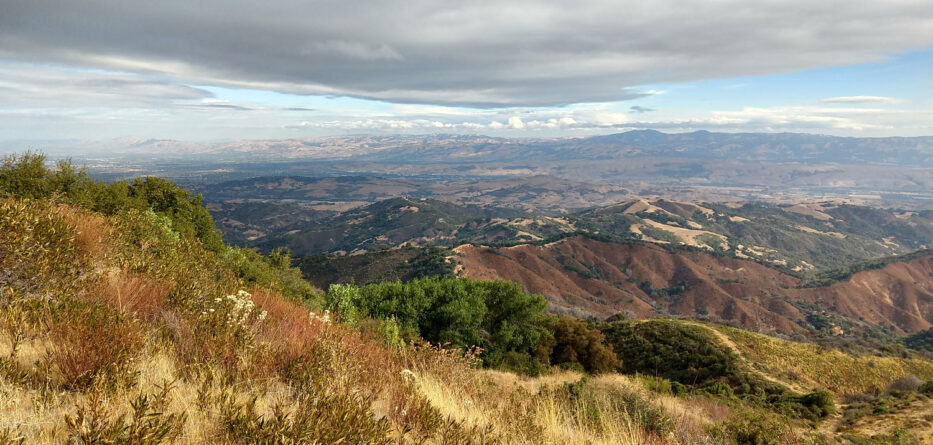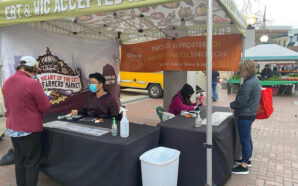Arturo Hilario
El Observador
Ethnic Media Services held a roundtable discussion on the impacts of Measure T on October 1st, which was attended by San Jose Assemblymember Ash Kalra, San Jose Councilmember Sergio Jimenez, Open Space Authority Board member Shay Franco-Clausen, and Sadiya Muqueeth, Director of Community Health, Trust for Public Land.
The purpose of the meeting was to discuss how Measure Q, which was a parcel tax voted into fruition by Santa Clara County voters in 2014, has benefited the preservation of outdoor spaces as well as how grants from the parcel tax have helped local organizations reach out to the community with education and training.
Additionally, this was a push to get voters to vote Yes on Measure T, the extension to Measure Q.
Measure T will appear on the ballot for the November 3rd elections in Santa Clara County as a renewal for Measure Q, with no tax increase and a perpetual yearly renewal until ended by voters. According to the Open Space Authority, currently the Measure Q parcel tax generates around $7.8 million a year. All of the funds are spent in and around Santa Clara County.
The Open Space Authority is an independent public agency that to date has preserved over 26,000 acres of open space land in Santa Clara County for use by the public year-round.
According to Shay Franco-Clausen, “It operates three preserves that are open for the public 365 days of the year, free of charge for walking, bird-watching, bicycling, and for me, hosting personal hiking groups that I enjoy.”
Franco-Clausen’s support for Yes on Measure T focused on the equity the benefits provide communities who are less likely to go out into public spaces.
“If we talk about [how] we’re land protectors and land warriors, then we also have to empower and train other people to grow that message. We have to think on it on a continuum, how do we make it fun? How do we gain, [and] retain those communities who are working one or two jobs, and when there’s kids also have to work to support those families.”
Franco-Clausen added, “Our ancestors have built this land, and from that it’s innate in us to be a part of being land warriors. We just had to be reminded and welcome to those spaces that we’ve been traditionally and historically pushed away from, just working there, not enjoying those spaces.”
San Jose Councilmember Sergio Jimenez attributed his support to Yes on Measure T from his experience with Measure Q’s success.
“Early on, I was very curious if the funding as it relates to Measure Q was really going to be, you know, used as effectively as it has been. And I can tell you that I haven’t been let down a lot of the wonderful things that have happened.”
Jimenez talked about his experience of working with Open Space Authority and seeing how the organization was applying the funding to communities in Santa Clara County by way of grants to various organizations.
“Measure Q has allowed the Open Space Authority to give out [grants] to many small organizations around the city that are that are striving to provide accessibility to nature to many folks.”
Jimenez emphasized that bringing in people from all walks of life into the space of environmentalism was important to spread awareness and provide education about the outdoors.
“We really need to bring [in] folks in the community that often aren’t in this space, that I think care naturally about the environment. You know, I’m from Mexico. I was born in Mexico. But I can tell you that a lot of Mexicans don’t consider themselves environmentalists. But if you ask us if we care about the land, we will say, ‘yes’. Many people in California spend our days tilling the soil, planting the food that many people eat. And so, we care about the land. It’s just providing that space and that opening.”
Jimenez added, “I believe the new Measure T is so important to bring people into the fold and include them in some of these decisions and better understanding how preserving open space and opening these up these channels of better understanding and quite frankly, loving open space is very important for communities.”
Assemblymember Ash Kalra had many examples of organizations that were benefitting the Latino community especially, including the Azul organization, which works in Latino communities and along the coastlines of California to open access to underserved communities and conserve regions around the ocean.
“[They’re] actually providing opportunities, especially for Latino youth, to take advantage of these open spaces. And so by through measure, teamed with the Open Space Authority at preserving this land, which is adjacent to one of the largest Latino urban populations in the nation.”
It is evident from the various voices heard on the Yes on T roundtable were that one of the main proofs of concept for how and why Measure Q and Measure T should continue to be funded is that it provides opportunity for accessibility to knowledgebases and open spaces. Voters will decide if that is to continue on November 3rd.
“We are literally creating opportunities for access. And so, it absolutely is critical that we continue this work because it because we certainly need to make sure that we’re protecting open space. It’s got to be in every corner of our state, but it’s also got to be accessible to every population in every community,” said Kalra.





